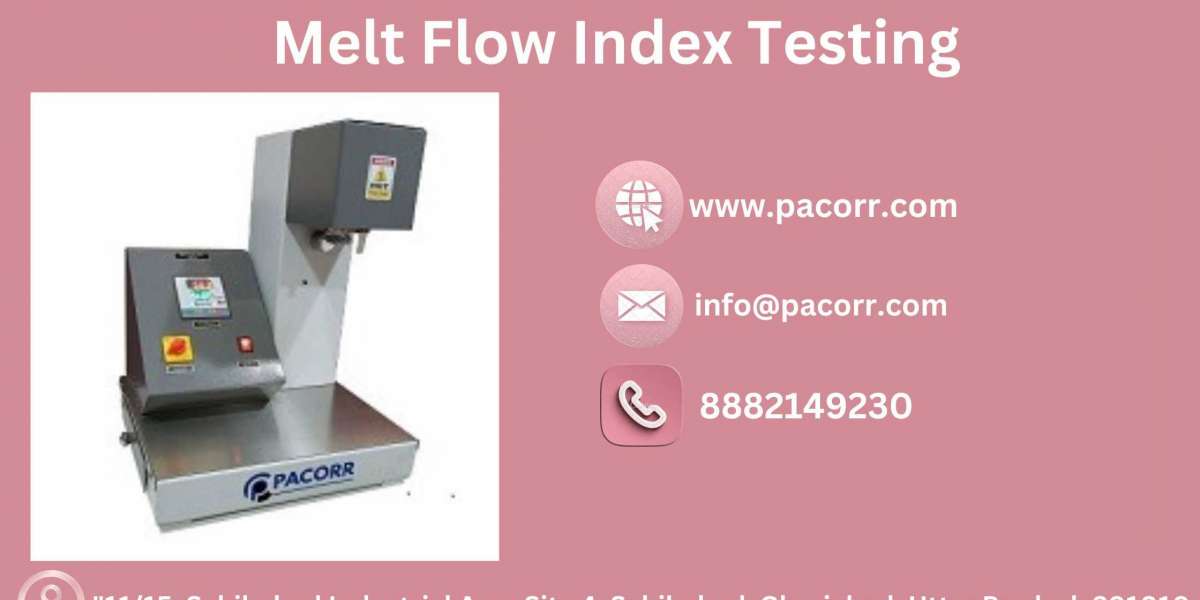Melt Flow Index Tester: Ensuring the Quality and Performance of Polymers
In today's highly competitive manufacturing industry, ensuring the quality and consistency of polymer products is crucial for maintaining a competitive edge. One of the most critical parameters in evaluating the quality of thermoplastic materials is the Melt Flow Index (MFI). The Melt Flow Index Tester is a specialized instrument designed to measure the melt flow rate of polymeric materials, providing manufacturers with valuable insights into the material's viscosity and, ultimately, its processing behavior. In this article, we will explore the importance of the Melt Flow Index Tester, its working principle, and its applications in various industries.
What is Melt Flow Index (MFI)?
The Melt Flow Index is a measure of the rate at which a polymer melts and flows under specific conditions of temperature and pressure. It is expressed in grams per 10 minutes and is used to determine the ease of flow of the polymer when it is in a molten state. The MFI value is inversely related to the viscosity of the polymer; a higher MFI indicates a lower viscosity, meaning the material flows more easily. This parameter is essential for understanding how a polymer will behave during processing, such as extrusion, injection molding, or blow molding.
Importance of Melt Flow Index Testing
MFI testing is a critical quality control procedure for polymer manufacturers. By accurately measuring the melt flow rate of materials, manufacturers can:
- Ensure Consistency: The MFI value helps in maintaining batch-to-batch consistency, ensuring that the polymer material meets the required specifications.
- Optimize Processing Conditions: Understanding the melt flow behavior of a polymer allows manufacturers to adjust processing conditions, such as temperature and pressure, to achieve optimal performance.
- Quality Control: MFI testing helps in detecting any variations in the material's composition, which could lead to defects in the final product.
- Material Selection: For product designers, knowing the MFI of different polymers helps in selecting the right material for a specific application.
Working Principle of the Melt Flow Index Tester
The Melt Flow Index Tester Price operates by extruding a molten polymer through a standardized die under a specified load and temperature. The instrument consists of a heated barrel, a piston, and a die. The process involves the following steps:
- Sample Preparation: A small amount of polymer sample is loaded into the heated barrel of the tester.
- Heating: The barrel is heated to a specific temperature, usually between 190°C to 230°C, depending on the type of polymer being tested.
- Applying Load: A specified weight (load) is applied to the piston, forcing the molten polymer to flow through the die.
- Measuring Flow: The amount of polymer that flows through the die in a set time (usually 10 minutes) is collected and weighed. The MFI is then calculated based on this weight.
The simplicity of this method makes the Melt Flow Index Tester a widely used tool in the polymer industry for quick and reliable quality control.
Applications of the Melt Flow Index Tester
The Melt Flow Index Teste is used across various industries where polymers are a primary material. Some of the key applications include:
- Plastic Manufacturing: In the production of plastic products such as films, pipes, and containers, MFI testing ensures that the material meets the required flow characteristics for efficient processing.
- Automotive Industry: Polymers used in automotive parts need to have specific flow properties to ensure durability and performance. MFI testing helps in selecting the right materials.
- Packaging Industry: The flow properties of polymers used in packaging materials are crucial for processes like extrusion and blow molding. MFI testing ensures that the materials used have the correct melt flow rates.
- Consumer Goods: Products like toys, household items, and electronic casings rely on polymers with consistent flow properties. MFI testing ensures that these products are manufactured with high-quality materials.
Conclusion
The Melt Flow Index Tester is an indispensable tool for manufacturers working with thermoplastic polymers. By providing accurate measurements of the melt flow rate, it helps ensure the consistency, quality, and performance of polymer products. Whether in plastic manufacturing, automotive, packaging, or consumer goods industries, the MFI Tester plays a critical role in maintaining product standards and optimizing production processes.
Investing in a reliable and precise Melt Flow Index Testing is essential for any manufacturer aiming to produce high-quality polymer products. With the insights gained from MFI testing, manufacturers can enhance their processes, reduce material waste, and deliver products that meet the stringent demands of today's market.







